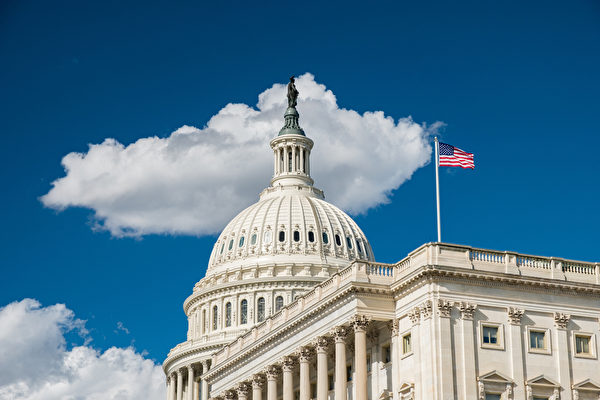
The United States is implementing several measures to promote the “de-Chinaization” of the global supply chain to address unfair competitive practices by the Chinese Communist Party (CCP), according to Japanese commentator Ji Lin. Another notable development in this regard is the unanimous approval of the “Ending China’s Developing Nation Status Act” by the U.S. Senate Foreign Relations Committee on June 8. This bill calls for the secretary of state to pursue a change in China’s status from a developing country to a developed country through existing treaties and other mechanisms.
Despite China being the world’s second-largest economy and a recipient of substantial foreign investments, it has consistently claimed the status of a developing country, which grants it certain privileges and flexibility. However, Sen. Chris Van Hollen (D-Md.) said, “From its economic and military scale to massive investments in countries around the world, it is evident that China is no longer a developing country. For a long time, China (the CCP) has been exploiting this designation to gain unfair advantages in multilateral agreements.”
In a similar vein, Sen. Dan Sullivan (R-Alaska) stated, “China is the world’s second-largest economy. It is one of the most industrialized countries in the world. China (CCP) possesses one of the most powerful militaries in the world. The World Bank now even classifies China as an ‘upper-middle-income’ country. The idea that China is a ‘developing country’ is absurd.”
The June 8 resolution passed by the Senate Foreign Relations Committee will now proceed to full Senate deliberation.
A similar bill called the “PRC is Not a Developing Country Act,” referring to the People’s Republic of China, was previously approved in March by the U.S. House of Representatives with a vote of 415–0. Despite political divisions within the United States, there appears to be remarkable consensus when it comes to dealing with the CCP.
Lin, speaking with the Epoch Times on June 12, explained that the CCP leverages its developing country status to enjoy trade remedies, anti-dumping exemptions from the World Trade Organization, tariff preferences for various products, financial assistance from international organizations like the World Bank, and agricultural support policies. If China were to lose its developing country status, these corresponding benefits would end.
Lin also noted that despite there being hundreds of millions of impoverished people in China, the CCP does not utilize the benefits it receives to uplift ordinary citizens. Instead, it channels hundreds of billions of dollars into infrastructure projects to expand its influence through initiatives like the “Belt and Road” initiative.
‘De-Chinaization’ of Supply Chain Has Begun
Progress has been made in the “Indo-Pacific Economic Framework” (IPEF), as the United States announced at the end of May that the 14 member countries have achieved significant advancements in ensuring more secure and flexible supply chains. This represents a tangible outcome for the IPEF, which was launched a year ago.
Gina Raimondo, the U.S. Secretary of Commerce, highlighted in a press conference that the recently established agreement is the first of its kind, requiring each participating country to establish a committee dedicated to coordinating supply chain activities. Additionally, a “crisis response network” will be established to issue alerts regarding potential supply disruptions to all member countries of the IPEF.
The agreement aims to provide IPEF countries with an emergency communication channel to seek support in the event of supply chain disruptions. By fostering closer coordination and cooperation, the participating nations can respond more effectively and recover more swiftly during crises.
Supply chain negotiations represent one of the four pillars of the IPEF, alongside trade, clean energy, and fair economy. These negotiations are expected to require more time and effort to reach substantial agreements.
Led by the United States, the IPEF was officially launched in May last year. The other members are South Korea, Japan, Australia, New Zealand, India, Brunei, Indonesia, Malaysia, the Philippines, Singapore, Thailand, Vietnam, and Fiji. Collectively, these 14 countries contribute to approximately 40 percent of the global economic output.
It is important to note that China is not a part of the IPEF. One of the primary intentions behind the establishment of this framework by the United States was to provide regional countries with an alternative to China.
Analyst Lin expressed his belief that if the global supply chain continues to witness a trend of “de-Chinaization,” characterized by countries reducing their reliance on Chinese products and imposing higher tariffs on them, it would deal a severe blow to the Chinese economy.
“The essence of the IPEF is economic cooperation based on shared universal values,” Lin said. “Countries with such values are more likely to cooperate and reshape the world economic order. CCP has been a member of the World Trade Organization (WTO) for more than 20 years but has not fulfilled its commitments, and the WTO itself does not have a strong punitive mechanism, so the United States can only take matters into its own hands.”
Lin further stated, “The recent moves by the United States, including terminating China’s developing country status and promoting de-Chinaization of the global supply chain, are aimed at countering the CCP’s unfair competition.” Lin believes that raising awareness among major economies about the CCP’s unfair practices is essential for the concept of de-Chinaization to gain prominence.
On June 9, the United States, along with five allied countries—Australia, Canada, Japan, New Zealand, and the United Kingdom—issued a joint statement condemning economic coercion and non-market policies in global trade and investment. Although the statement did not explicitly mention China, it was widely understood that it was referring to Beijing’s actions.
In recent years, China’s share in U.S. foreign trade has been steadily declining. The U.S. Department of Commerce announced on June 7 that for the 12-month period ending in April of this year, China accounted for just 15.4 percent of U.S. merchandise imports. This represents the smallest share since October 2006 and the lowest value in 17 years. The downward trend reflects a shift in the dynamics of U.S.-China trade relations.
Ellen Wan has contributed to this article.


















































